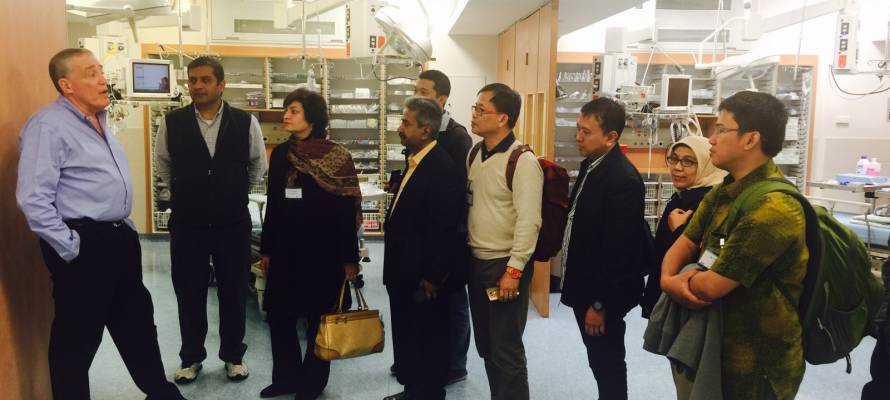Visiting from India, Sri Lanka and even Indonesia, experts on treating victims of large-scale natural disasters arrived in Israel to learn how to treat terrorism casualties.
A delegation of international experts visited Israel this week to gain further expertise in treating victims of terror who suffered trauma. The knowledge they acquire will be used back in their home countries, which suffer from frequent natural disasters.
The experts, who included medical doctors and government officials, traveled from India, Sri Lanka and Indonesia. The arrival of Indonesian representatives was a rare occasion, since the country has no diplomatic ties with Israel.
In fact, on Thursday, Indonesia suffered an Islamic State (ISIS) terror attack at a Starbucks cafe that killed two people and wounded 19.
The delegation visited Jerusalem’s Hadassah Ein Kerem hospital, which runs the only Level 1 Trauma Center in Jerusalem and meets criteria set by the American College of Surgeons. The center is prepared to deal with mass-casualty events and treats severely wounded victims.
Professor Avi Rivkind, head of the Hadassah General Surgery and Trauma Departments, discussed with the visitors methods used to treat victims of terror attacks and traffic accidents.
The Sri Lankan trauma experts were surprised to hear that Professor Rivkind had participated in the treatment of victims of the 2004 tsunami disaster in their own country.
Many of the delegation members were experienced in treating victims of major natural disasters such as tsunamis, floods and earthquakes. They took interest in Hadassah’s rehabilitation options for trauma victims and in the hospital’s treatment procedures and division of labor.
“The arrival of such a delegation, including representatives of countries with no diplomatic relations with Israel, is definitely a rare occasion and is something we can be proud of,” said a spokesperson for Hadassah.
The visit was initiated and arranged by the American Jewish Committee, an advocacy group acting globally to support Israel and to develop unofficial relations between Israel and foreign states, governments and diplomatic delegations around the world.
By: Michael Bachner/TPS and United with Israel Staff
